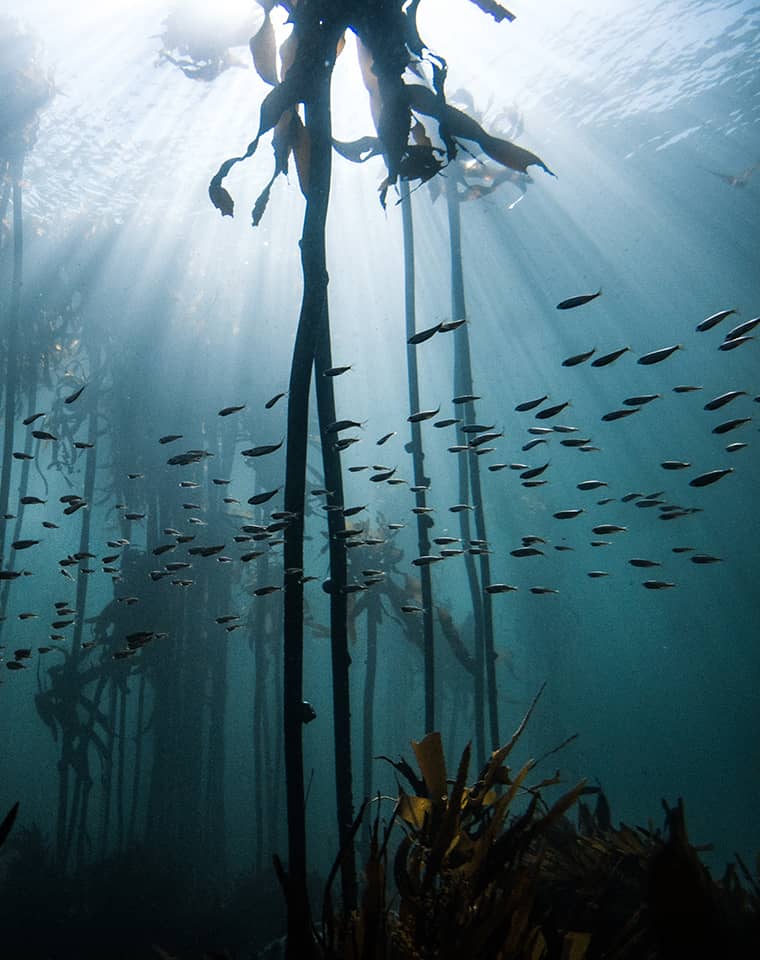The Sunken Stories and Ancient Wisdom of the Great African Seaforest
Swati Thiyagarajan
“Full fathom five thy father lies: Of his bones are coral made; Those are pearls that were his eyes: Nothing of him that doth fade, But doth suffer a sea-change, into something rich and strange.”
William Shakespeare
William Shakespeare wrote these words sometime in the early 1600s and expressed in his excellently poetic way a transformation of matter, where life flows in all things and we are all interconnected. Many centuries later, in 2012, a group of humans in Cape Town were individually grappling with changes of our own, struggling to find a deeper connection with the natural world. Awe-inspiring swims in icy water led to the creation of a storytelling project to showcase the wonder of Cape Town’s kelp forests. Next came the decision to establish an organisation that would explore this deep need to find connection, and inspired by Shakespeare, we named it The Sea Change Project (SCP).
For us the metamorphosis would not be just a physical one, but a true change of heart and mind, which ignited a deep curiosity about the interconnectedness of all living beings and a desire to share stories about the miracle that is the living planet.
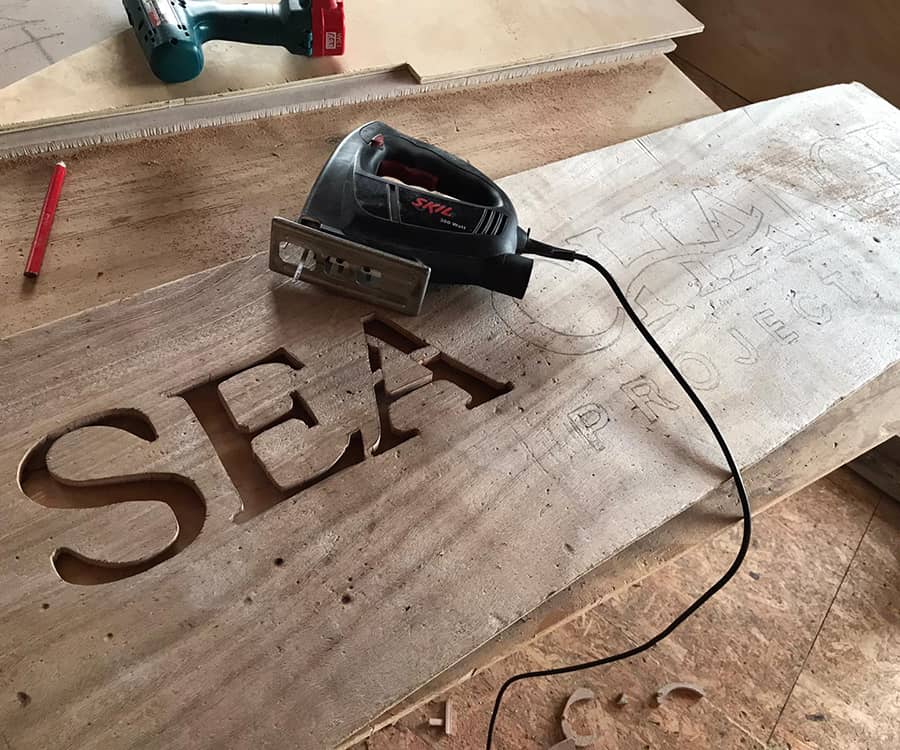
The Beginning. Photo credit Pippa Ehrlich.
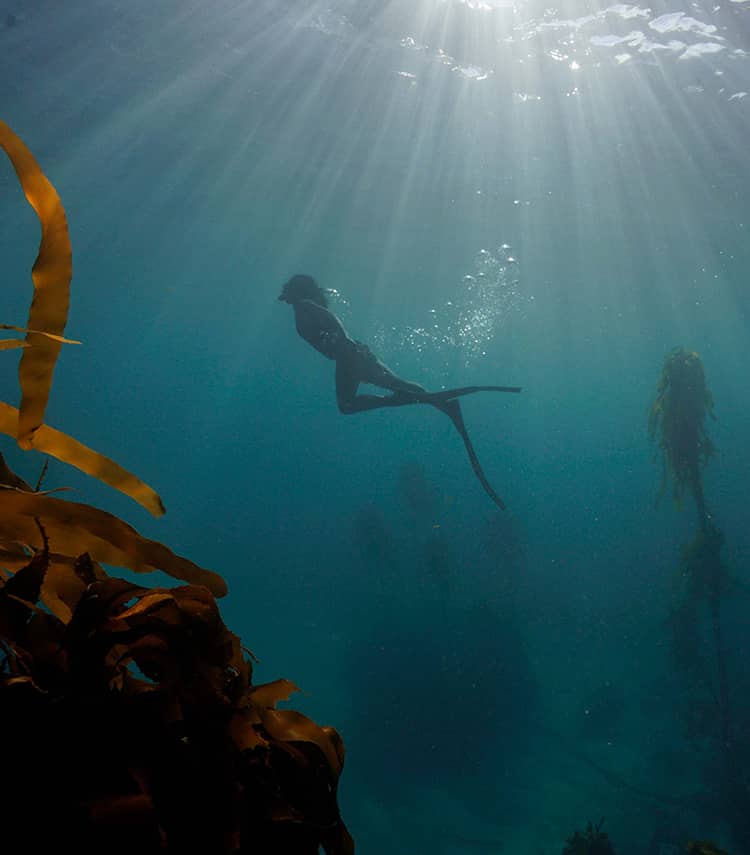
Exploring the depths of The Great African Seaforest. Photo credit Sea Change Project
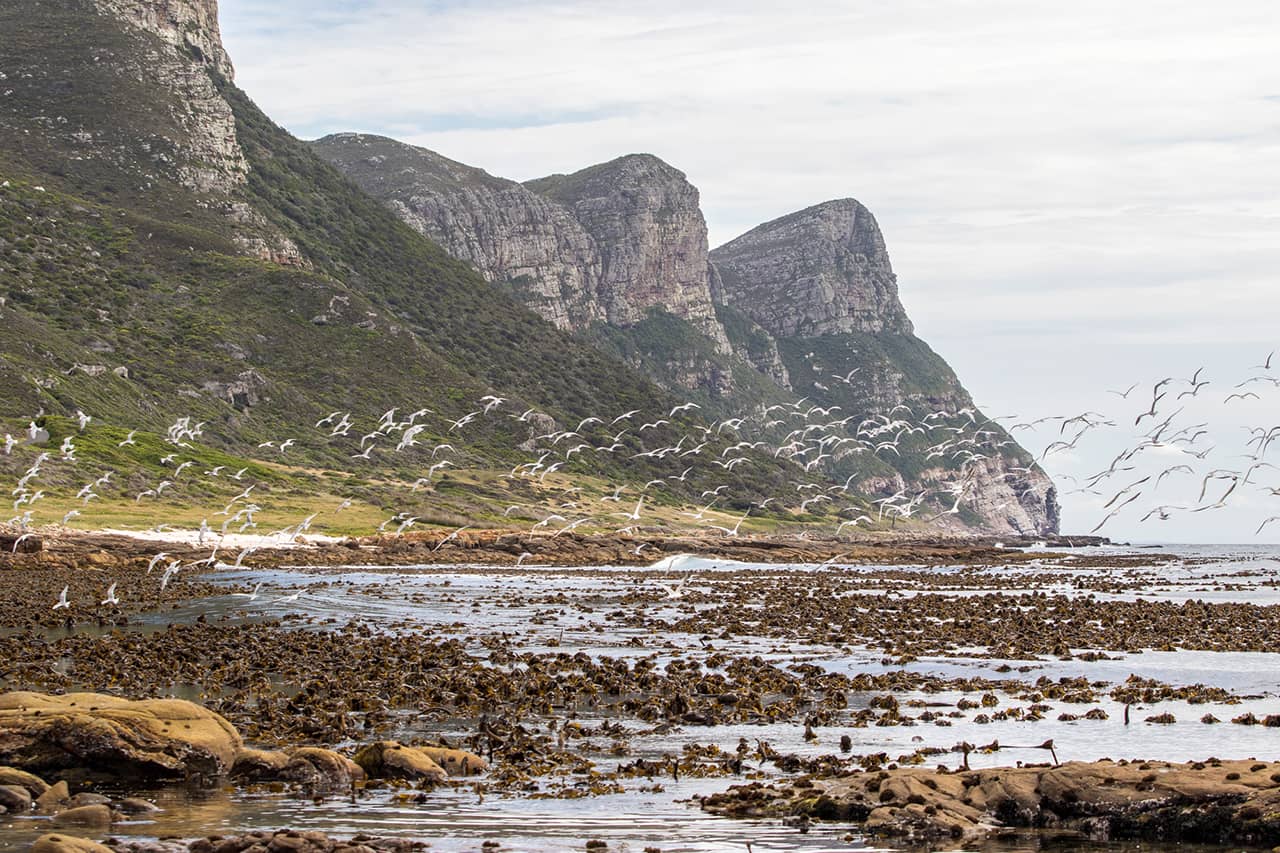
The biodiversity-rich coastline at the Cape of Good Hope, Table Mountain Nature Reserve. Photo credit Craig Foster.
It became evident that we needed a way to bring that messaging into our work. We also knew that our work needed to be grounded in science and that to some extent we needed to invest in our own marine research too. So we combined our passion for exploration and discovery with science and created the 1001 Seaforest Species project .
This project is a science based endeavour that will find, photograph, describe and classify a thousand and one species in the kelp forest starting with the Octopus as number 1 and the human as number 1001. The name A Thousand and One was inspired from the Arabian Night tales, where a slave girl changes the mind of a cruel emperor through telling him a 1001 stories. She goes from the threat of being beheaded, to becoming his love at the end of the storytelling. We hope our 1001 stories of the Great African Seaforest and its unique biodiversity, allows people to fall in love with nature and change their relationship with her to a more nurturing one.
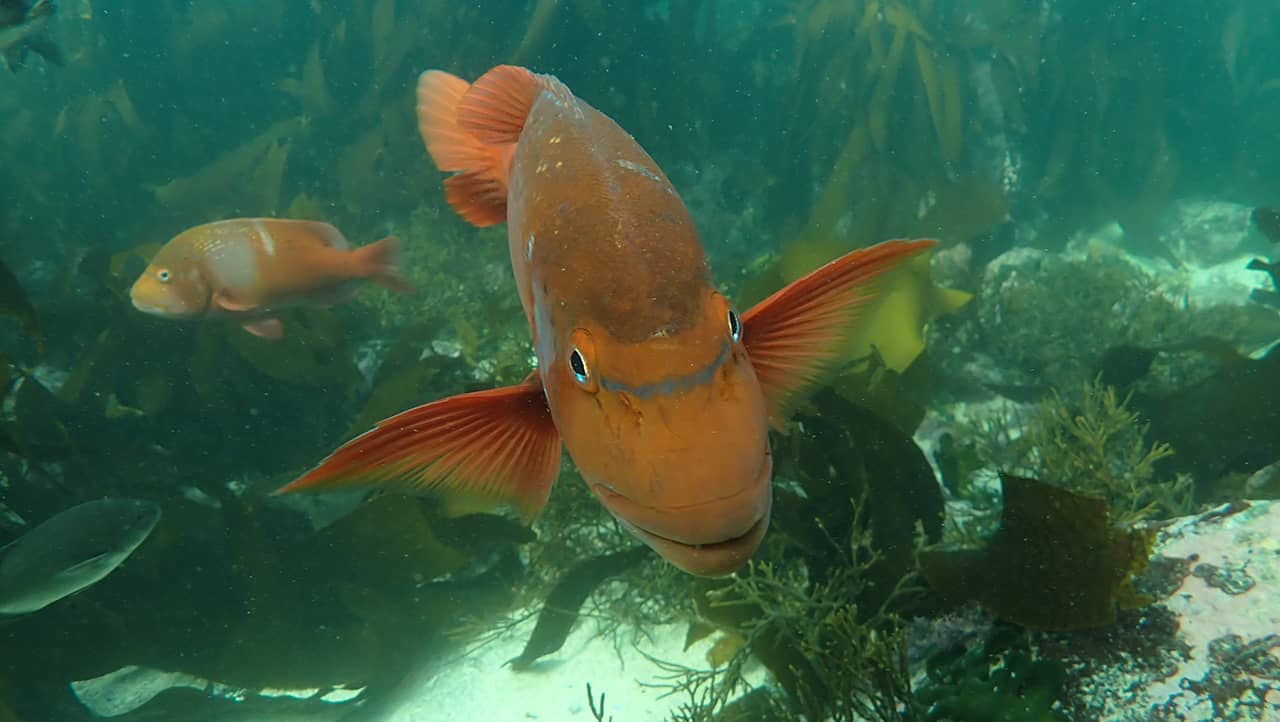
Photo credit Swati Thiyagarajan.
Our strength lies in storytelling that is informed by science. But what kind of stories to tell? Do we beat the same drum that has been beaten by conservation organisations for decades – even centuries? The beats would say; our planet is under threat, identify those who are responsible, list the dangers and signal solutions. These are all important and powerful messages. There is also the extreme of finger-pointing, accusations and shaming – strategies which have mostly served to polarise and divide in a time when we desperately need unified action. We wondered if
there was space for a new voice within the global conversation about the dangers we face. A voice that spoke to love.
Neurologists know that our decision-making as humans is driven mostly by emotion. We might like to think we rely on logic and facts, and to a small extent we do, but our primary drivers lie in our subconscious: instinct and emotion.
When our Academy Award and BAFTA winning movie My Octopus Teacher became a global phenomenon, we were deeply affirmed, because it meant that our instincts were right. We chose not to follow a traditional conservation narrative and to avoid any direct messaging, and yet this film has been a game-changer for inspiring global support and love for octopuses and the natural world. We realised that we had a very powerful tool for our conservation mission. Because of our lived daily experiences, we had a unique ability to share our joy and wonder with first-hand authenticity, sparking it in our audiences. Good storytelling was the key.
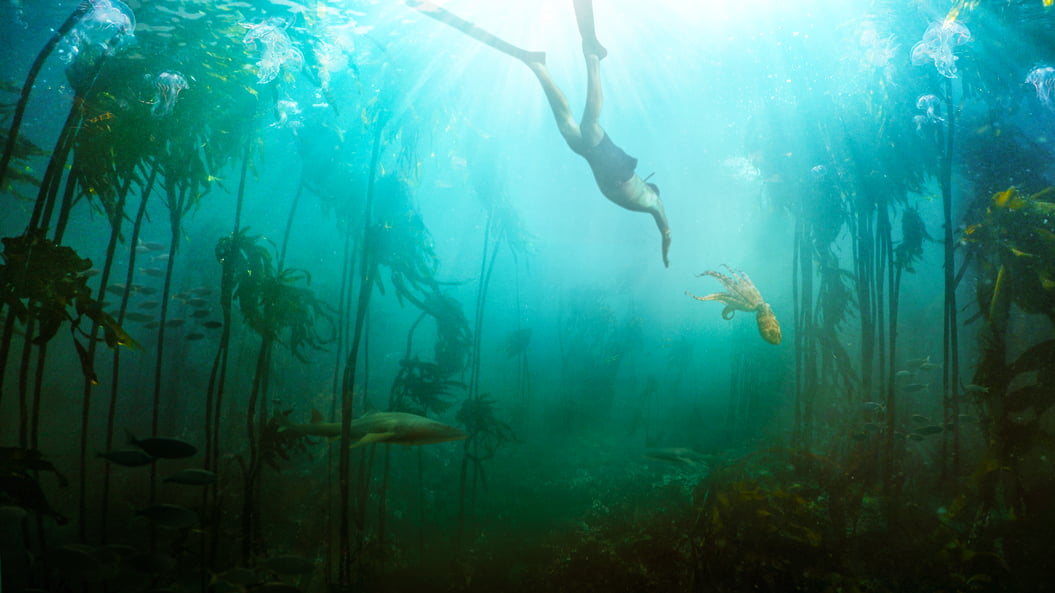
My Octopus Teacher. Photo credit Sea Change Project.
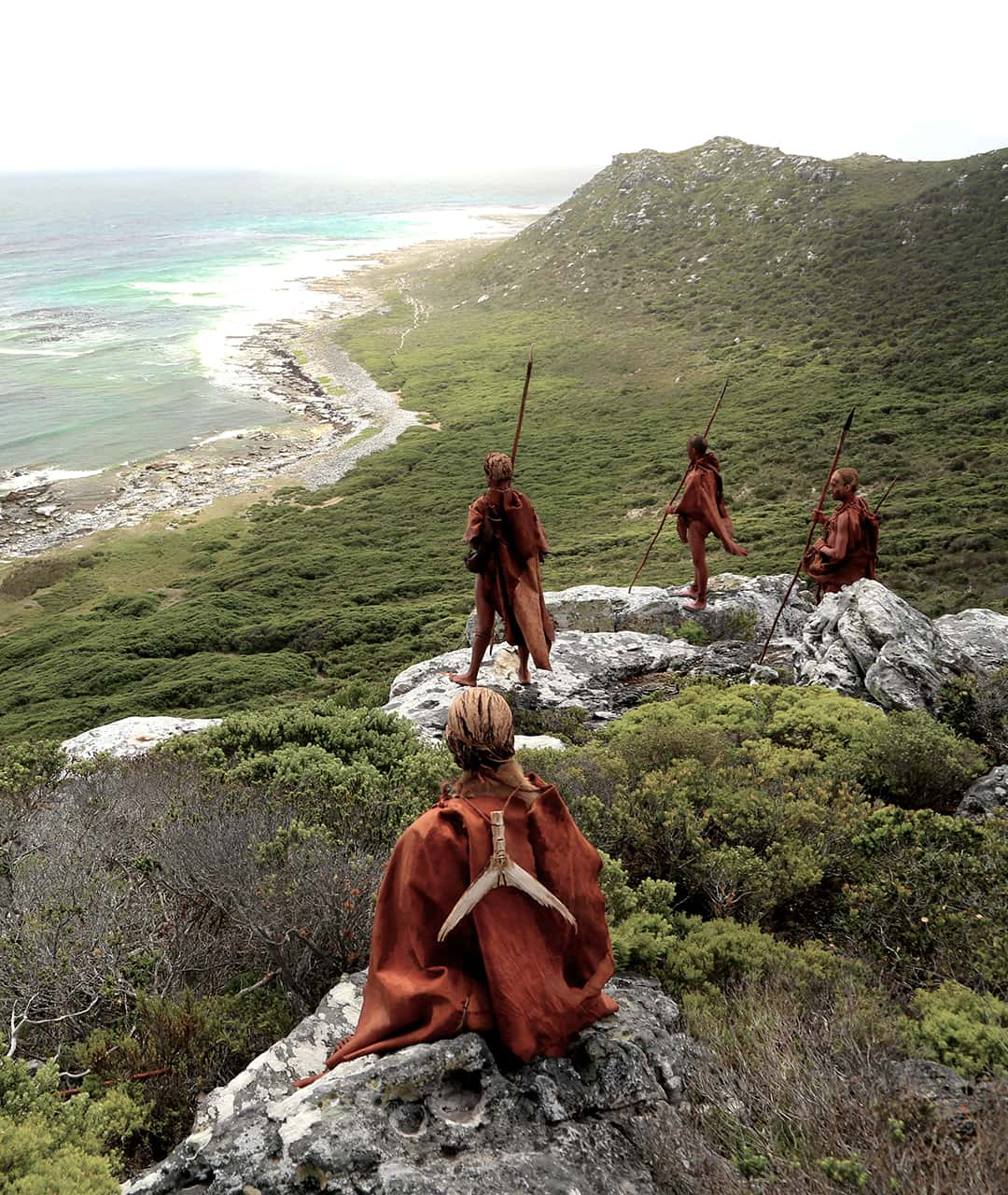
Photo credit Craig Foster.
“The greatest landscape for wild nature is the human heart and the greatest landscape for the human heart is wild nature.”
Bittu Sehgal
Conservation is the move to protect, preserve and regenerate our natural ecosystems and we believe this is only truly possible when a deep connection is regenerated within: a kind of rewilding of the self. Inspired by nature, grounded in science and guided by indigenous wisdom, we are working on many new projects to bring you more Sea Change stories. Because as Bittu Sehgal, a wonderful conservation mentor, once said: “The greatest landscape for wild nature is the human heart and the greatest landscape for the human heart is wild nature.”
